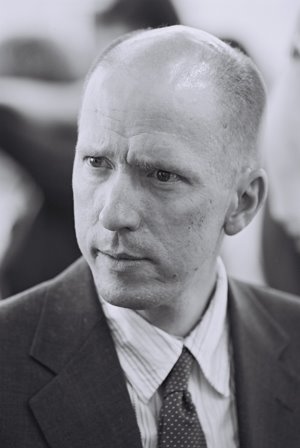OK, so what are the criteria we should look at to see if economics is a science? Rachman uses a clever trick and pulls a quote from a winner of the Nobel prize for economics, Joe Stiglitz, who wrote that science was "defined by its ability to forecast the future." Actually, he didn't define science that way; he said "If a science..." is defined that way then economics is in trouble because it didn't forecast the crisis. Rachman seizes on the forecasting definition. But it doesn't take long to realize that many sciences do not forecast the future at least not in the sense of accurately predicting exactly when and where certain things will happen. Astronomers can't stake their claim to forecasting the future since the astronomical future won 't be known until long after they are all dead. And biologists don't predict future evolution of most species. And climate scientists didn't predict global warming fifty years ago. And meteorologists didn't predict Hurricane Katrina in advance of its formation. Earthquake scientists can't tell me the day when Vancouver will be hit by the "big one."
I don't think anyone can seriously argue that forecasting the future is the rule for membership in the science club. Rather it's something about being able to systematically understand the mechanisms at work in the field of study. With that understanding you may get predictive ability or you may not depending on the complexity of the system and how well evolved the science has become. Economics is a science since it consists of a set of mechanisms that help us understand the economy. But the subject matter is highly complex, and it keeps on changing. A crisis is a particular combination of effects that causes the current situation to fall apart. It involves individual agents and their interactions in ways that are hard enough to model and close to impossible to predict.
Two more points.
First, even when astronomers predicted the sun revolved around the earth, they were still doing science. Just not doing it very well. Partly because of limited knowledge--it was a young science. Partly becuase the science was infected by religion. That's my worry about economics. It's a science where certain types of secular "religion" have taken hold. We have to shake of this religion to make progress.
Second, in contrast to the humble vision of historians espoused by Rachman, we know from the case of Niall Ferguson that they are not content to say: "Actually, chaps, it was a bit more complicated than that." Instead look at what Ferguson says in another column in the FT: "there invariably came a point when money creation by the central bank triggered an upsurge in inflationary expectations." That sure sounds a lot like someone who has looked at history and elucidated a general law that holds in all situations. Or how about this one: "American stimulus can end up benefiting Chinese exporters; and at a time when there is much under-utilised capacity, so that deflation is a bigger threat than inflation." Ferguson is doing economics in this sentence; he's just not doing it very well. There is no way to see Ferguson as following what Rachman approvingly deems the true function of the historian: "to concentrate on the particular and the specific and to puncture the pretensions of social scientists, with their constant and futile effort to derive general, predictive laws from the study of the past." We can't get by without economics as a science. We have to have some analytical framework that holds across particular instances in history or we would have no basis to formulate policy. We have to do it better. Theories need to be confronted with historical evidence. But we need to do the maths too.

No comments:
Post a Comment